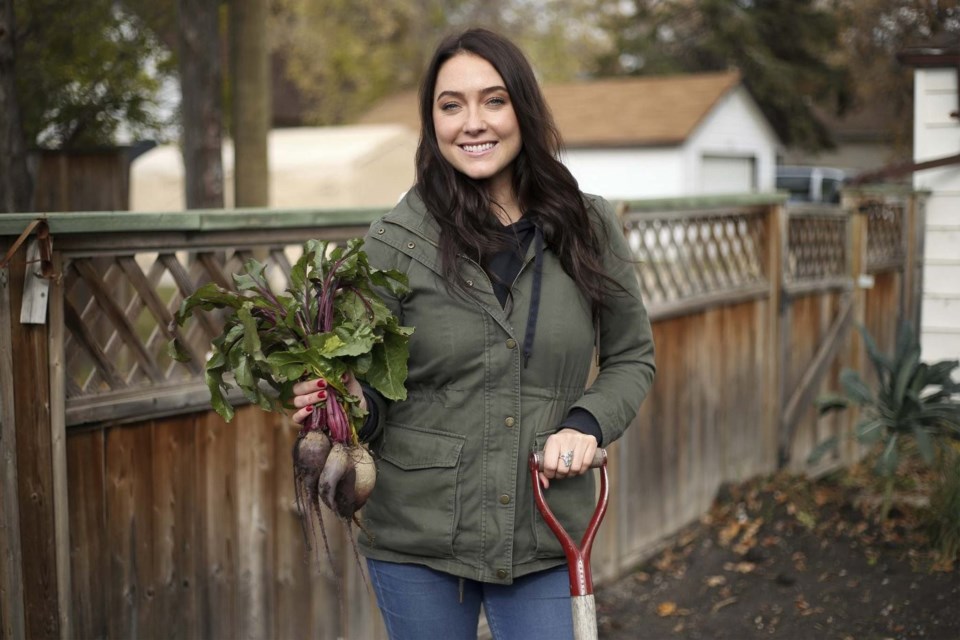From tending juicy tomatoes and jalapeño peppers to fresh onions and even cucumbers, Melody Doern says home gardening has been her solace during the COVID-19 pandemic.
“What started as a stress reducer became the thing that saved me,” the Winnipeg paramedic told the Free Press. “It’s kept me grounded, calm and given me a sense of food security when everything else around me has been nothing but hectic.”
New research suggests Doern’s not the only one.
Influenced primarily by the coronavirus pandemic, nearly one in five Canadians have started growing their food at home this year, according to a study released last week by Dalhousie University’s Agri-Food Analytics Lab with polling firm Angus Reid.
Data from the survey shows 51 per cent of all respondents grow at least one variety of fruit or vegetable at home.
And a provincial breakdown of stats suggest more residents are home food gardeners than are not in provinces like Manitoba, Saskatchewan and British Columbia.
Of all respondents who grow food at home, 23.7 per cent started gardening this year in Atlantic Canada — the highest proportion of new gardeners in any region across the country. In Ontario, results for people who garden and those don’t are almost neck and neck, at 50.1 per cent and 49.9 per cent.
“Frankly, these results kind of surprised me,” says leading food supply chain expert Sylvain Charlebois, who conducted the study.
“Speaking from my own personal experience, growing your own food isn’t the easiest thing to do,” he said. “But I think shifting habits during the pandemic have certainly brought on a lot of people to do this — which is especially interesting because these results are being seen quite a few months after spring, when growing food would’ve been that much easier.”
The report suggests most home food gardeners have a university degree, certificate or diploma. And a total of 82.4 per cent of them live in single-family homes, with 70.2 per cent growing at least some of their home produce in front or backyards.
Just under half of all new gardeners do not have children, while two-thirds of the long-time gardeners who responded to the survey have children.
Part of the reason for why so many people have turned to gardening, said Charlebois, can been seen in the concerns they stated about food supplies during COVID-19.
About 53 per cent respondents are worried about food shortages during the pandemic, with 42.9 per cent of new gardeners saying they started growing their own food because they believed it was safer than buying in grocery stores.
Meantime, 85 per cent people said they’re concerned about a rise in food prices because of the pandemic — figures that are consistent for both long-time and new gardeners, as well as non-home food growers.
“Certainly when you look at all the food recalls this year,” said Charlebois, “the pandemic isn’t the only safety concern people would have about the food they use.”
“I think it’s also interesting that dietary preferences do not have any significant impact on home food growing,” he said, noting that a total of 79.7 per cent of home food gardeners don’t have any dietary restrictions, with only 4.4 per cent who are either vegetarian or vegan.
“Instead of preferences leading the way,” he said, “it’s been habits that have done that.”
Over half of home food growers considered gardening to be a good exercise, while 69 per cent found it relaxing during the pandemic.
For brothers Eric and Steven Rae, that couldn’t be more true.
As an actor in Winnipeg, Eric lost a lot of his work during the pandemic. He said gardening has given him “a reason to get up every morning.”
The two created an Instagram page to sell some of their plants and share gardening tips with their friends.
“With the industry shutting down and losing my part-time job,” said Eric, “it really just helped having this one calming thing to turn to with my brother.”
Steven says it gave him “peace and solace.”
“At the end of the day, our world is still looking the way it is,” he said. “And while our solitude isn’t something we’re ever going to get used to, at least it’s given us time to return to our roots and to feel some sense of empowerment by producing our own food.”



